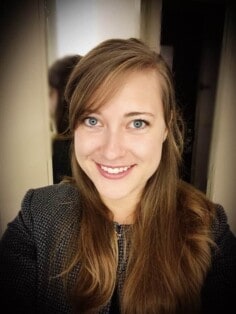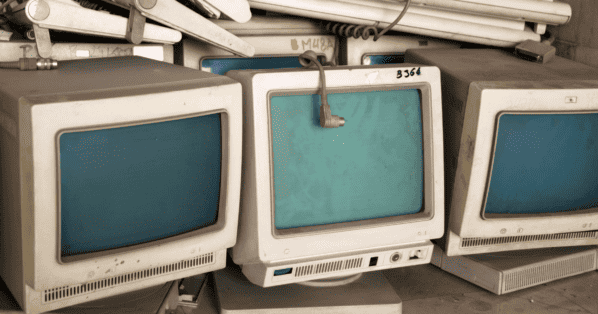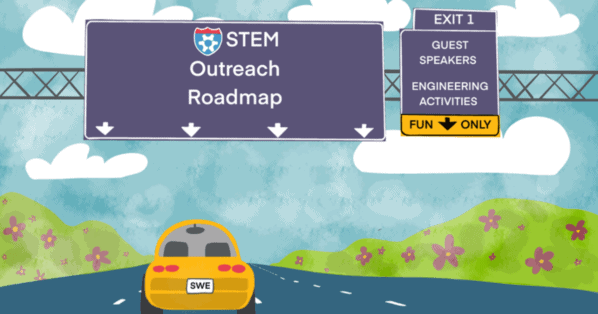A Note from Your SWENext K-8 Newsletter Reporter, Allison
Hello everyone, my name is Allison! Welcome to SWENext. I am so excited to be your SWENext K-8 Newsletter Reporter again this year. I hope you are as excited about this journey as I am. I am so grateful to the women in STEM who taught me how exciting Engineering can be. I hope that I can do the same, and inspire you, as well.
Meet SWENext Reporter, Allison!
 I would like to take this time to tell you a little bit about myself. I grew up in lots of places including Washington State. I am studying for my Ph.D. in Materials Science and Engineering at the University of Texas at Arlington. I earned my Bachelor’s Degree from Washington State University. I earned my Master’s Degree from the University of North Texas, where my research was in plastic materials.
I would like to take this time to tell you a little bit about myself. I grew up in lots of places including Washington State. I am studying for my Ph.D. in Materials Science and Engineering at the University of Texas at Arlington. I earned my Bachelor’s Degree from Washington State University. I earned my Master’s Degree from the University of North Texas, where my research was in plastic materials.
My research now is in electronic materials. The kinds of materials that I work with are used in things like computers, cell phones, cars, and airplanes. I look at what is called packaging, which protects microchips while helping current flow through them. I break these into little parts called solder joints, which hold microchips onto the green plastic boards that are in computers.
This summer, I got to intern at Texas Instruments. There, I got to work with Electrical Engineers, Computer Engineers, Mechanical Engineers, Materials Science Engineers, and Chemical Engineers. It is pretty cool that so many different types of engineers work on the little parts that make your computer work!
The reason why so much work goes into such little parts is because we want to make sure that they last a long time and that they do not break easily. Sometimes, if you drop your phone, it will be broken. Engineering helps us solve that problem.
Some days, I am working on the computer, which I use to do CAD (computer-aided design) and run simulations to predict what solder joints do when they get hot. Other days, I might be working in the lab.
My lab work definitely keeps me busy. Depending on what needs to be done, I might be soldering wires and chips to a printed circuit board for testing. Sometimes, I might be making printed circuit boards using plastic, ultraviolet light, and chemicals. Then there are days when I am troubleshooting ovens or analyzing data.
When a sample breaks, I grind it down using a polishing machine to see where the failed solder joint is, and I look at it in a really cool machine called a Scanning Electron Microscope. This machine helps me zoom in far enough to see really tiny broken solder joints.
The professor that I work with does fun research with an organization called the Semiconductor Research Corporation, which we call SRC. SRC brings companies like Texas Instruments, Samsung, Intel, and NXP together with universities. They provide research students like me with projects to work on. We get to go to conferences and present our research and also get to meet important people in the industry.
Because my research is mostly with SRC and Texas Instruments, I have been really lucky to meet some awesome engineers. I also was awarded a fellowship paid for by Texas Instruments. This helps me pay for everything I need while I study for my Ph.D. Companies like Texas Instruments want to see you succeed and try really hard to help you along the way. Materials Science and Engineering can be hard, but it is also fun!
I think that if you are interested in this field or any other type of engineering, you will definitely do well if you work hard. I promise that I will show you that this year as I introduce you to engineering students and show you all of the fun opportunities for different kinds of engineering. The possibilities are endless for engineers!
Related Content:
- SWENext Club Spotlight: The Neering Divas
- SWEet Wisdom: How did you develop your engineering skills in high school?
- Your Questions Answered: Follow-up Q&A on Building Rapport at Work
Author
-

SWE Blog provides up-to-date information and news about the Society and how our members are making a difference every day. You’ll find stories about SWE members, engineering, technology, and other STEM-related topics.






